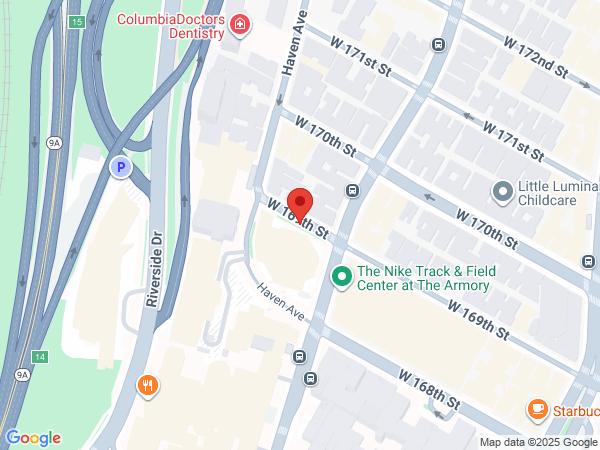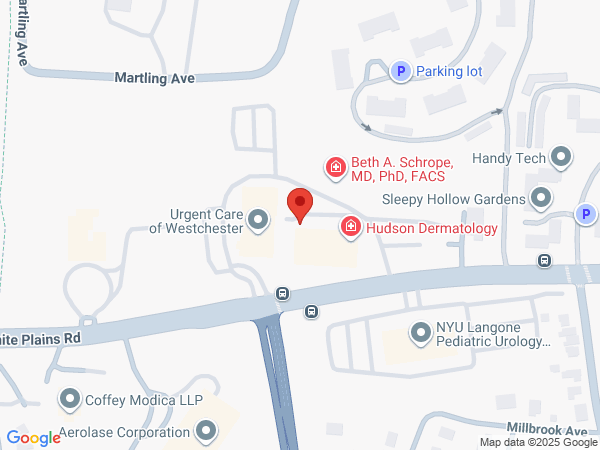Neil A Shneider, MD, PhD
On the web

Overview
Dr. Neil Shneider is a physician-scientist with expertise in neuromuscular development and disease. He is a graduate of Harvard College and of the MD-PhD program of the Columbia University College of Physicians and Surgeons, and he was Chief Resident of the Harvard Longwood Neurology Training Program.
Dr. Shneider completed his graduate work in the laboratory of Dr. Richard Axel and his postdoctoral fellowship in the laboratory of Dr. Thomas Jessell. After several years in the Intramural Program of the National Institute of Neurological Disorders and Stroke, Dr. Shneider returned to Columbia University as Assistant Professor of Neurology in the Neuromuscular Division. He is a member of the Center for Motor Neuron Biology and Disease and of the H. Houston Merritt Clinical Research Center. Dr. Shneider has clinical expertise in the diagnosis and care of patients with ALS and related motor neuron diseases.
Areas of Expertise / Conditions Treated
- ALS (Amyotrophic Lateral Sclerosis)
- Lou Gehrig's Disease
- Neuromuscular Disease
Academic Appointments
- Claire Tow Professor of Motor Neuron Disorders
Administrative Titles
- Director, Eleanor and Lou Gehrig ALS Center
- Director, ALSA/ALS Clinic
Hospital Affiliations
- NewYork-Presbyterian / Columbia University Irving Medical Center
Gender
- Male
Schedule an Appointment
Virtual Visits/Telehealth
Virtual Visits allow you to connect with your provider from the comfort, convenience, and safety of your own home.
Phone Appointments
Connect Patient Portal
For existing patients, login to make an appointment, view documentation or contact your care provider.
Location(s)
Insurance Accepted
Aetna
- Aetna Signature Administrators
- EPO
- HMO
- Medicare Managed Care
- NY Signature
- POS
- PPO
- Student Health
Affinity Health Plan
- Essential Plan
- Medicaid Managed Care
Amida Care
- Special Needs
Cigna
- EPO
- Great West (National)
- HMO
- POS
- PPO
Emblem/GHI
- Medicare Managed Care
- PPO
Emblem/HIP
- ConnectiCare
- EPO
- Essential Plan
- HMO
- Medicaid Managed Care
- Medicare Managed Care
- POS
- PPO
- Select Care (Exchange)
- Vytra
Empire Blue Cross/Blue Shield
- EPO
- HMO
- Medicare Managed Care
- PPO
Empire Blue Cross Blue Shield HealthPlus
- Child/Family Health Plus
- Essential Plan
- Medicaid Managed Care
Fidelis Care
- Child/Family Health Plus
- Essential Plan
- Medicaid Managed Care
- Medicare Managed Care
Healthfirst
- Child/Family Health Plus
- Leaf (Exchange)
- Medicaid Managed Care
- Medicare Managed Care
Healthspring (Cigna Medicare)
- Medicare Managed Care
Local 1199
- Local 1199
MagnaCare (National)
- MagnaCare
Medicare
- Railroad
- Traditional Medicare
Multiplan
- Multiplan
MVP Health Care
- Child/Family Health Plus
- Essential Plan
- HMO
- Medicaid Managed Care
RiverSpring
- Special Needs
UnitedHealthcare
- Compass (Exchange)
- Empire Plan
- HMO
- Medicaid (Community Plan)
- Medicare Managed Care
- Oxford Freedom
- Oxford HMO
- Oxford Liberty
- POS
- PPO
VNSNY CHOICE
- Medicare Managed Care
- SelectHealth
- Special Needs
WellCare
- Medicaid Managed Care
- Medicare Managed Care
World Trade Center Health Plan
- World Trade Center Health Plan
Credentials & Experience
Education & Training
- PhD, Columbia University, NY
- BA, Harvard College
- MD, Columbia College of Physicians and Surgeons
Board Certifications
- Neurology
Honors & Awards
2012 Stephen Q. Shafer Award for Humanism in Neurology
Research
Models and Mechanisms of Motor Neuron Degeneration in Amyotrophic Lateral Sclerosis
Amyotrophic lateral sclerosis (ALS) is a progressive neurodegenerative disease of the motor system that primarily involves spinal and bulbar motor neurons and their descending, corticospinal inputs. ALS is genetically complex, and can be caused by mutations in a large and growing number of genes encoding proteins of diverse function. Using mouse genetics, we have generated and characterized several animal and cellular models of ALS to explore molecular mechanisms of disease and to elucidate pathways of motor neuron degeneration that may be targets for drug discovery. Work in the lab focuses on:
• the role of mutant FUS, TDP-43 and related ALS-associated RNA binding proteins in motor neuron degeneration. In particular, we are interested in the propensity of these proteins to form abnormal ribonucleoprotein assemblies that are selectively toxic to motor neurons. We use a combination of molecular, biochemical and computational methods to explore mechanisms of disease onset and progression in ALS
• molecular mechanisms of neurodegeneration caused by a hexanucleotide expansion in the gene C9orf72, the most common cause of familial ALS and frontotemporal dementia (FTD)
• the role of ALS mutant astrocytes and oligodendrocytes in the pathogenesis of ALS
• the role of motor neuron excitability and synaptic excitation in motor neuron dysfunction and degeneration
• genetic studies in novel animal and cellular models of ALS to validate promising pathways of disease; in vitro studies to screen small molecules and identify candidate therapeutics for ALS
In addition, our group is interested and involved in patient-based basic, translational and clinical research that focuses on:
• whole genome sequencing of ALS patients to elucidate novel disease pathways and potential targets
• phenotype-genotype correlation studies
• the generation and characterization of human, cellular models of ALS based on induced pluripotent stem cell (iPS) lines from clinically well-characterized patients
• early phase drug discovery
Research Interests
- Amyotrophic Lateral Sclerosis
- Genetic Basis of Neurological Disease
- Models of Neurological Disorders
- Neural Degeneration and Repair
- Neurobiology of Disease
Selected Publications
Selected publications:
- Aarti Sharma, Alexander K. Lyashchenko, Lei Lu, Sara Ebrahimi Nasrabady, Margot Elmaleh, Monica Mendelsohn, Adriana Nemes, Juan Carlos Tapia, George Z. Mentis, Neil A. Shneider. ALS-Associated Mutant FUS Induces Selective Motor Neuron Degeneration through Toxic Gain of Function. Nature Communications. 2016 Feb 4;7:10465. doi: 10.1038/ncomms10465. PubMed PMID: 26842965.
- Valerie C. Siembab, Laura Gomez-Perez, Travis M. Rotterman, Neil A. Shneider, Francisco J. Alvarez (2015). Role of Primary Afferents in the Developmental Regulation of Motor Axon Synapse Numbers on Renshaw Cells. Journal of Comparative Neurology. 2015 Dec 11.
- Tetsuro Murakami, Seema Qamar, Julie Qiaojin Lin, Gabriele S. Kaminski Schierle, Eric Rees, Akinori Miyashita, Ana R. Costa, Roger B. Dodd, Fiona T.S. Chan, Claire H. Michel, Deborah Kronenberg-Versteeg, Yi Li, Seung-Pil Yang, William Meadows, Rodylyn Rose Ferry, Liang Dong, Gian Gaetano Tartaglia, Giorgio Favrin, Wen-Lang Lin, Dennis W. Dickson, Mei Zhen, Gerold Schmitt-Ulms, Paul E. Fraser, Neil A. Shneider, Christine Holt, Michele Vendruscolo, Clemens F. Kaminski, Peter St George-Hyslop (2015). FUS mutations induce formation of irreversible hydrogel-like assemblies that impair RNP granule function. Neuron 2015 Oct 28. pii: S0896-6273(15)00924-1.
- Elizabeth T. Cirulli, Brittany N. Lasseigne, Slavé Petrovski, Peter C. Sapp, Patrick A. Dion, Claire S. Leblond, Julien Couthouis, Yi-Fan Lu, Quanli Wang, Brian J. Krueger, Zhong Ren, Jonathan Keebler, Yujun Han, Shawn E. Levy, Braden E. Boone, Jack R. Wimbish, Lindsay L. Waite, Angela L. Jones, John P. Carulli, Aaron G. Day-Williams, John F. Staropoli, Winnie W. Xin, Alessandra Chesi, Alya R. Raphael, Diane McKenna-Yasek, Janet Cady, J.M.B. Vianney de Jong, Kevin P. Kenna, Bradley N. Smith, Simon Topp, Jack Miller, Athina Gkazi, FALS Sequencing Consortium, Ammar Al-Chalabi, Leonard H. van den Berg, Jan Veldink, Vincenzo Silani, Nicola Ticozzi, Christopher E. Shaw, Robert H. Baloh, Stanley Appel, Ericka Simpson, Clotilde Lagier-Tourenne, Stefan M. Pulst, Summer Gibson, John Q. Trojanowski, Lauren Elman, Leo McCluskey, Murray Grossman, Neil A. Shneider, Wendy K. Chung, John M. Ravits, Jonathan D. Glass, Katherine B. Sims, Vivianna M. Van Deerlin, Tom Maniatis, Sebastian D. Hayes, Alban Ordureau, Sharan Swarup, John Landers, Frank Baas, Andrew S. Allen, Richard S. Bedlack, J. Wade Harper, Aaron D. Gitler, Guy A. Rouleau, Robert Brown, Matthew B. Harms, Gregory M. Cooper, Tim Harris, Richard M. Myers, David B. Goldstein (2015). Exome sequencing in amyotrophic lateral sclerosis identifies risk genes and pathways. Science 2015 Mar 27;347(6229):1436-41.
- Xinmei Wen, Wenzhi Tan, Thomas Westergard, Karthik Krishnamurthy, Shashirekha S. Markandaiah,Yingxiao Shi, Shaoyu Lin, Neil A. Shneider, John Monaghan, Udai B. Pandey, Piera Pasinelli,Justin K. Ichida, Davide Trotti (2014). Antisense Proline-Arginine RAN Dipeptides Linked to C9ORF72-ALS/FTD Form Toxic Nuclear Aggregates that Initiate In Vitro and In Vivo Neuronal Death. Neuron 84 (6), 17 December 2014, 1213-1225.
For a complete list of publications, please visit PubMed.gov

